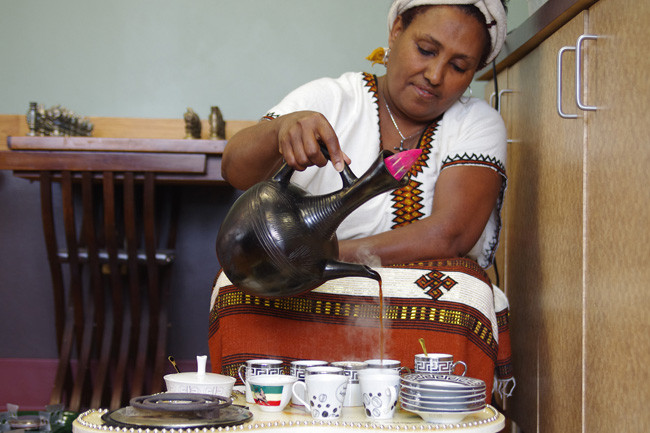
While opinions differ as to where coffee originated, there are many who believe it was in Ethiopia. There’s even a folktale to explain it: Kaldi, a goatherd, noticed that his goats would eat berries from a certain tree, and then not sleep at night. Kaldi reported this to an abbot at a local monastery, who made a drink from the berries and discovered that it did indeed help him stay awake longer.
Whether or not the story is true, Ethiopian coffees are revered for their high quality. But for Ethiopians, there’s more to coffee than just drinking it. New Brighton’s Limu Coffee (named for a type of coffee grown in southwestern Ethiopia) not only brews excellent coffee, it can provide — with advance notice — an experience called the Ethiopian coffee ceremony ($7 per person).
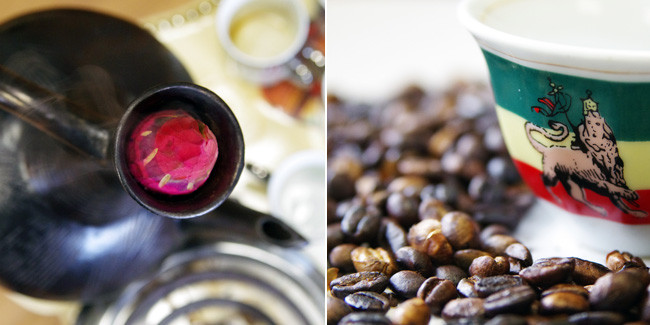
We recently made a reservation for this ceremony and arrived at the appointed time. But nothing was ready — the coffee wasn’t started, or even set up; the table and chairs weren’t arranged; and Limu’s owner, Gedam Azeze, was dressed in her usual coffee shop T-shirt. The internal complaining kicked off: “She knew we were coming at 10. Why isn’t it ready? Why are we waiting?”
Because that’s not the Ethiopian way to serve coffee to friends, and frankly, they’ve got it right. The American method of being busy and efficient doesn’t hold up against the leisurely, relaxing Ethiopian ceremony. In an Ethiopian coffee ceremony, a fair amount of time will pass before the coffee is served, giving participants time to relax and settle in, and, most importantly, begin talking to create and reinforce personal connections.
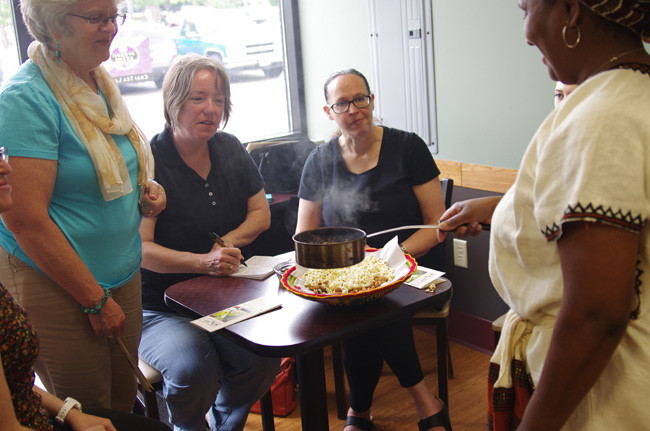
Gedam didn’t explain this to us up front. Instead, she greeted us, asked us where we’d like to sit, and then arranged the seven chairs around one very small table. She disappeared, and we were left to our own devices, which meant launching into congenial discussions of politics, books, movies, the best way to make your own vanilla extract. The internal complaining was silenced as the pleasure of visiting with good friends gradually took over.
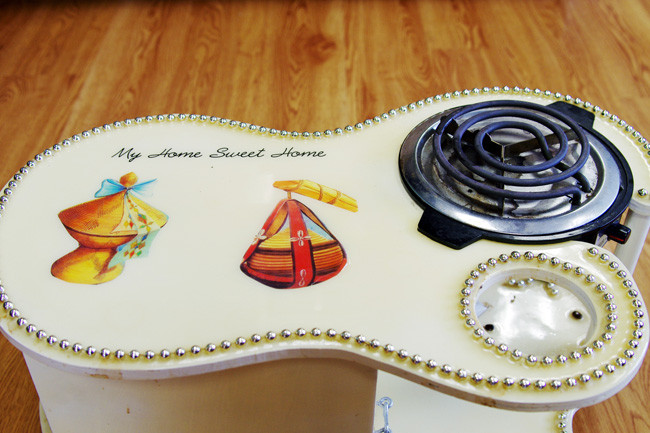
Eventually, Gedam returned in resplendent Ethiopian dress and began setting out the tools of her trade: a small stove, an elaborate staging table, and a large tray. The first order of business was to roast the beans. Yes, right there, right then, in a pan that has clearly roasted many beans. The petite green coffee beans sizzled, then crackled, as they darkened and expanded, becoming glossy and filling the room with a strong coffee aroma. Gedam also lit frankincense to ward off bad spirits.
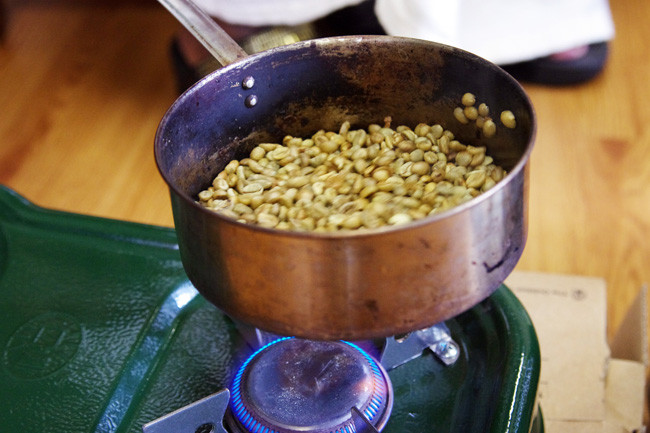
In Ethiopian homes, the youngest family member rises first and roasts the beans, then takes the pan to the eldest male, waking him up with the aroma. Before long, family members go out and knock on neighbors’ doors, announcing morning coffee. Soon many people are gathered in a small space, around a tiny table, just as we were in New Brighton. First, snacks known as kebuna kourse are served. These are traditionally popcorn or bread, but in our case it was popcorn and trail mix, served ahead of the coffee, as we chatted and watched the proceedings and teased each other about raiding the trail mix for the chocolate pieces.

Gedam showed us each step from green to roasted beans, and then described how in Ethiopia she would use the wooden equivalent of a mortar and pestle to grind the beans to the desired coarseness. She told us that the ritual is part of daily life in her birthplace (which she left 27 years ago), and that community members would take turns hosting it. At Limu she uses a gas stove, but in Ethiopia, she would have roasted the beans over charcoal. Once ground, the coffee is mixed with the water in an elegant ceramic pot called a jebena. Gedam poured the water into and out of the pot several times, making sure the grounds were fully soaked before being boiled.
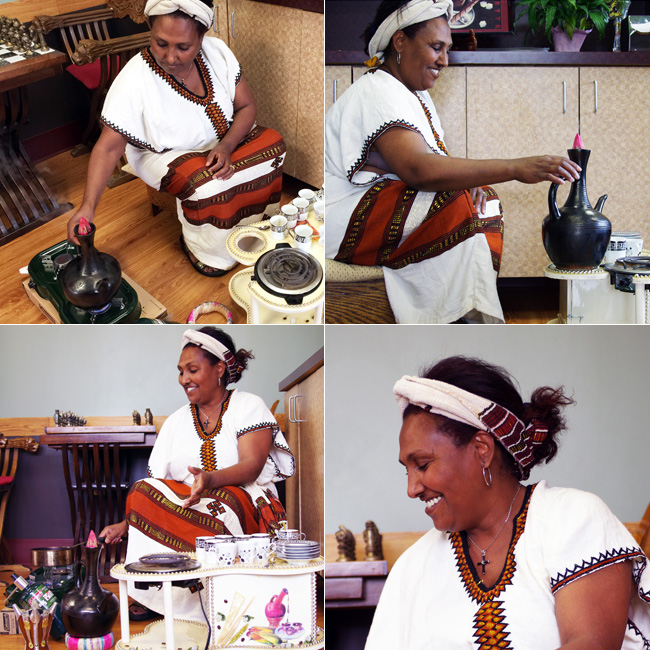
The coffee ceremony is more than a morning ritual. Being invited to attend one is a sign of friendship or respect. It’s a way of sharing information among neighbors, and a way to strengthen family ties.
Finally our coffee was ready, and by then the conversation had gotten quite lively, with much laughter. In Ethiopia, the coffee is served in little porcelain cups without handles. Gedam uses small handled cups, however, as many of us are not adept at holding cups of hot beverages by the bowl. She meticulously poured the coffee in a thin stream from several inches above the cup, a mesmerizing sight — would she spill? Not a drop.
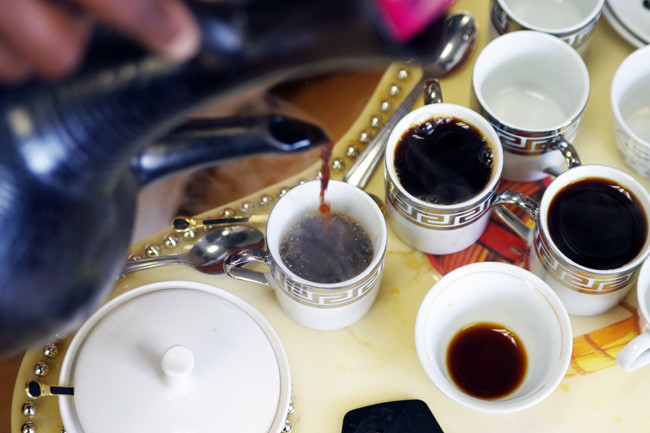
The cups were distributed, and we learned more about the Ethiopian way of serving coffee: usually with sugar, but not milk. Our group decided to try it plain first. It was a rich, smooth brew with a strong flavor, but low acidity. By itself, it was delicious. It seemed sacrilegious to mess with it, but we wanted to try it the Ethiopian way. Putting a small amount of sugar in the coffee changed the flavor just slightly — not so much sweetening it as softening it. Different, but also delicious.
Ethiopians also use salt in their coffee, so we tried that on the next round. Just as with the sugar, salt changed the flavor slightly, mellowing it somewhat, but the final sips had a strongly salty flavor.
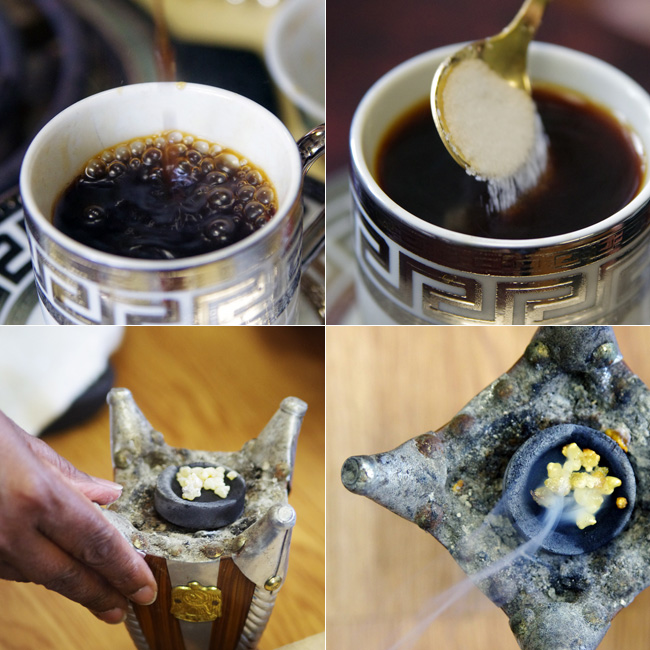
Gedam was kind enough to provide half-and-half, and using it gave the coffee an additional richness without really adding a milky flavor. It was as if the coffee took in the additions and made them its own.
The ceremony traditionally includes three rounds of coffee, known as Abol, Tona, and Baraka, the last of which means blessing. The emphasis is on relaxing and enjoying companionship. With seven of us, the ceremony took nearly two-and-a-half hours—an almost absurdly luxurious amount of time to spend with three tiny cups of coffee. Or is it? As a group, we left feeling both relaxed and re-energized, not to mention politically astute and highly literate from our wide-ranging discussions. We all agreed that starting a day with this kind of event would almost certainly improve our lives.
It wasn’t until much later that I remembered feeling impatient upon arrival, when nothing was ready. I admit it: I was wrong. Not everything has to be scheduled within an inch of its life. It was even better that Gedam didn’t tell us this up front, but let us discover it ourselves as the leisurely ceremony progressed. Sometimes you just have to go with the flow. And watch the coffee beans roast.
Limu Coffee
500 5th Ave, New Brighton, MN 55112
651.633.3454
HOURS:
Mon-Fri, 6 a.m.-7 p.m.
Sat, 8 a.m.-5 p.m.
Sun, 9 a.m.-3 p.m.
PARKING: Lot
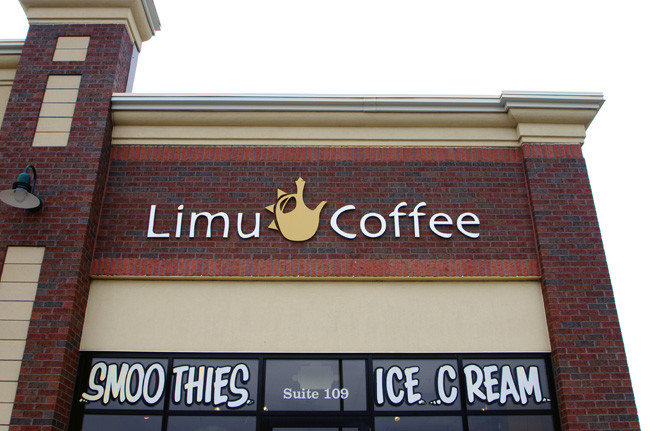

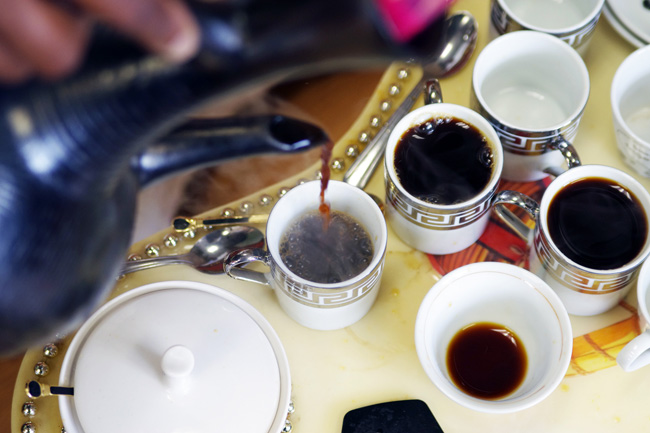
Comments are closed.